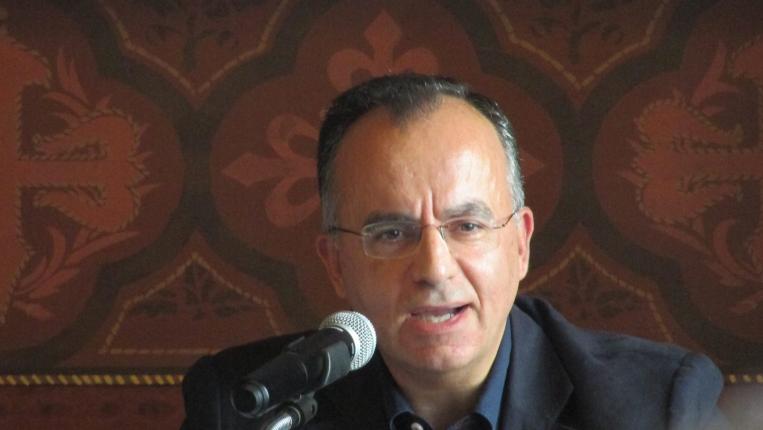There are good municipal practices with projects for independent living after the age of 65. Active and healthy ageing is the theme of an international congress taking place in Guimarães until Thursday. An event of which Expresso is a media partner
The longevity of the population is a good thing for citizens who live longer and a bad thing for the budgets of the state and local authorities, which are obliged to set aside money to cater for these men and women over 65 with a life expectancy of up to 80 or 90 years. Government and local authorities are obliged to step in to guarantee the quality of life of the elderly in their homes, gardens and public spaces, combating isolation, offering fast, quality health care, calling in the police forces - PSP and GNR - to guarantee the safety of everyone and of the most isolated.
The figures (from INE) are clear: in Portugal there are two elderly people for every young person. And faced with this scenario, “the role of local authorities is fundamental”. Adelina Pinto, deputy mayor of Guimarães, argues that “cities have to be designed for people and for active citizens”. Now, “this great challenge requires a new vision of public, urban and green space, that of everyone helping to age with quality and reducing the number of people who end up in hospital”. The mayor recalls that we are all “going to be old for longer” and that the state and society have to do something so that “growing old is not a decrepit thing”.
The debate on active and healthy ageing brought together representatives of social sector institutions, all those who “have the best practices, strategies and public policies on ageing”, as João Ferreira, from Braga Social Security, stressed. And he took Guimarães as an example, “a city that has been able to grow old” and “better understand ageing” by having answers and practices that respond to the challenges of citizens aged 65 and over.
Longevity: a rainbow of multiple colors
The panel that opened the meeting, “Longevity but with quality”, brought together Pedro Cunha, administrator of the Alto Ave Local Health Unit, and Eduardo Duque, professor at the Portuguese Catholic University (UCP). The doctor and the sociologist showed active and healthy ageing as a rainbow of multiple colors. “An urgent and emerging issue” because “longevity is the world's greatest achievement” as Catarina Vieira da Silva, the moderator who is also a professor at UCP, understands. She recalled UN figures which estimate that by 2050 around 22% of the world's population will be over 60.
In Portugal, there are shades in the rainbow of longevity, where for every 180 old people there are 100 young people and vulnerability and poverty are close by. Women are the loneliest - in a universe of 1/4 of the Portuguese population. Catarina Vieira da Silva focused on four pillars of healthy ageing: ageism, a city that is friendly to the elderly, integrated care for them and the long-term care that must be maintained to sustain quality of life. And the dignity enshrined in human rights in social responses.
As the central theme of this first of three days, “Longevity, but with quality” gave Eduardo Roque an X-ray of Portuguese life, comparing the 1930s and today, over a period of 80 to 90 years. Between the 6.5 million Portuguese of yesterday and the 10.5 today, they confront a “poor and small” Portugal and another that is part of the European Union, richer because “the wealth of a country is measured by the number of people”.
The illiteracy rate was also pointed out as a factor in development. It was 66% 90 years ago and is now just 3%. Early school leaving, now at EU standards, and the fertility rate - from 4 to 1.4 - were indicators chosen to illustrate the changes in society between yesterday and now.
In this sociological analysis, Eduardo Duque maintains that the rise in life expectancy beyond the age of 81 and the birth rate from 1.3 to 2.5 show that “we are very different”, classifying “our elderly as today's heroes who knew how to survive, who had a dream - to give their children a degree”. He added that these heroes didn't study but fought to “give their descendants a better life”.
Eduardo Duque says that “families are different today”, with “a clear distance between parents, children and grandparents”. But he emphasized that they are “democratic, with vertical relationships, without anyone speaking from the top down, where there is dialogue, consensus”. He focused on the individual autonomy of all family members, the flexibility of roles and the loss of “the authority of the father as breadwinner - who felt entitled to beat his wife and children - and the mother as the family carer, the mistress of affection, love and care that the children protect from the father's violence”.
The professor stressed that “today, we educate a lot for the welfare society we have created”, unlike in the past when “sacrifice” was sacred and later gave rise to a right to compensation. “We are very different, the family is diverse, unstructured and that's why there are more conflicts,” he said.
Old age begins in the mother's womb
Pedro Cunha, chairman of the board of directors of the Alto Ave Local Health Unit (ULSAAVE), traced the beginning of old age back to his mother's womb. And he emphasized the importance of each of us preventing disease and increasing our life expectancy.
An advocate of a health system that prevents - he said that the Ministry of Health is today the Ministry of Illness - and a quality of life and well-being that protects citizens from the risks of their existence, to which they are exposed, the doctor and hospital administrator says, however, that “not everything is in the hands of doctors, no more than 20% of citizens' health”. And he identified external and contextual factors that can influence the longevity rate: the quality of water, the existence of sanitation, having or not having leisure time - all of these are part of the 80% that doctors don't control.
He considered municipalities and the third sector as protagonists and agents of a change in the health paradigm in Portugal, as well as academia and intelligent systems. He opened the window on an innovative project at national level - which will be implemented in Guimarães, with schools, a 12-year plan, with “a serious education strategy” that is disseminated to families and has a solid structure. It aims to combat the effects of salt, smoking and fat from an early age.
Paula Oliveira, Guimarães' councillor for Social Action, closed the first day of the meeting by saying that “the corollary of dying well is knowing how to live well”. Nuno Marques, former coordinator of the National Plan for Active Ageing, summed up the session by saying that “in terms of longevity, Portugal already has a high life expectancy, on a par with the EU”.






